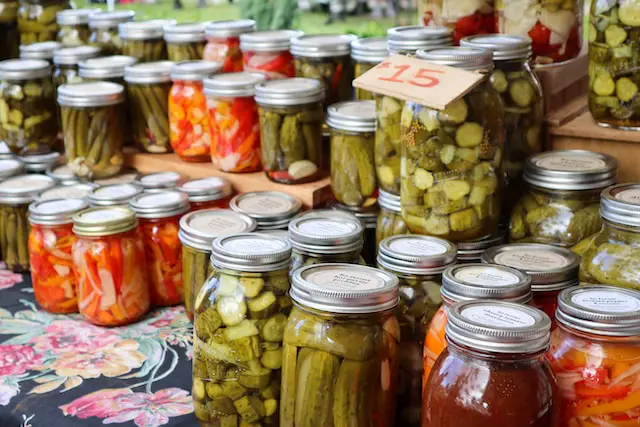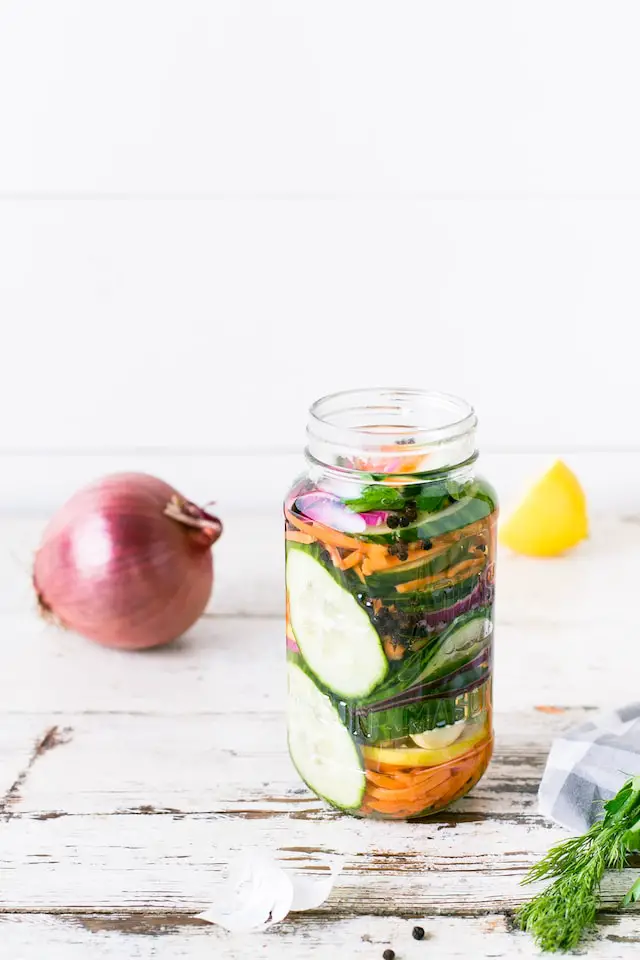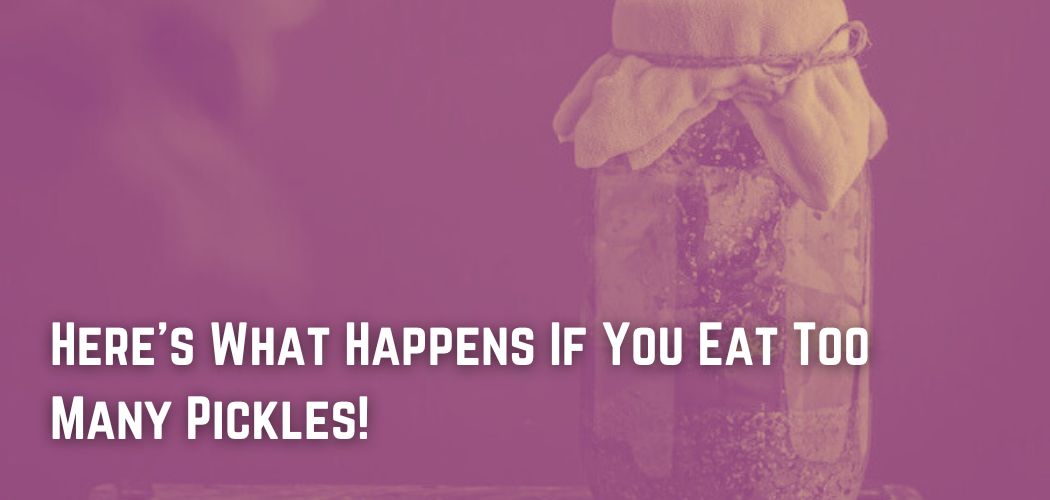Pickles are a popular snack and condiment around the world. They are made by pickling cucumbers in vinegar or brine, resulting in a tangy and sour taste. However, like with any food, consuming too many pickles can have negative consequences on your health.
Here are some potential side effects of eating too many pickles:
- High sodium intake: Pickles are high in sodium due to the salt used in the pickling process. Consuming too much sodium can lead to high blood pressure, which can increase the risk of heart disease and stroke.
- Stomach issues: Eating too many pickles can lead to an upset stomach. The vinegar and brine used in pickling can be acidic and cause discomfort or even pain if consumed in excess.
- Dehydration: Sodium is known to be a dehydrating agent. Consuming too many pickles can lead to dehydration, which can cause headaches, dizziness, and fatigue.
- Tooth enamel erosion: Pickles are acidic, and consuming too many can cause erosion of tooth enamel, leading to tooth sensitivity and cavities.
- Weight gain: Pickles are a low-calorie food, but consuming too many can lead to weight gain. This is because of the high sodium content, which can cause water retention and bloating.
- Blood sugar issues: Pickles have a low glycemic index, which means they have a minimal impact on blood sugar levels. However, consuming too many pickles can lead to a spike in blood sugar levels, which can be harmful to people with diabetes.
While pickles can be a tasty and healthy snack in moderation, consuming too many can have negative consequences on your health. It’s essential to be mindful of your intake and consume them in moderation.
If you experience any adverse effects after eating pickles, it’s best to consult a healthcare professional.
Contents
Health Benefits Of Pickles
Pickles, a popular food around the world, are made by pickling cucumbers in vinegar or brine. While they are often eaten as a snack or used as a condiment, pickles also offer several health benefits. Here are some of the health benefits of pickles:
- Good source of probiotics: Pickles that are made through fermentation are an excellent source of probiotics, which are beneficial bacteria that help improve gut health. Probiotics can aid in digestion, boost immunity, and reduce the risk of certain diseases.
- Low in calories: Pickles are a low-calorie food, making them a great snack for people watching their weight. A medium-sized pickle contains just 5-10 calories, making them a guilt-free snack option.
- Rich in antioxidants: Pickles are a rich source of antioxidants, which help protect the body against damage caused by free radicals. Free radicals can cause chronic diseases like cancer, heart disease, and Alzheimer’s disease.
- Contains essential minerals: Pickles are high in essential minerals like potassium, which can help regulate blood pressure, and calcium, which is important for strong bones.
- May aid in blood sugar control: Some studies have suggested that consuming vinegar, which is used in pickling, may help lower blood sugar levels. This may be beneficial for people with diabetes or those at risk of developing the condition.
- May improve hydration: Pickles are high in sodium, which can help improve hydration levels. While too much sodium can be harmful, consuming pickles in moderation can help keep the body hydrated.

Pickles offer several health benefits, including probiotics, antioxidants, essential minerals, and potential blood sugar control. However, it’s essential to consume pickles in moderation as they can be high in sodium, which can lead to health issues if consumed in excess.
If you’re looking for a healthy snack, consider adding pickles to your diet.
Nutritional Information
Pickles are often consumed as a snack or used as a condiment in sandwiches and burgers. Here’s a breakdown of the nutritional information of pickles:
One medium-sized pickle (35-40 grams) contains the following nutrients:
- Carbohydrates: 1-2 grams
- Fiber: Less than 1 gram
- Protein: Less than 1 gram
- Fat: Less than 1 gram
- Sodium: 200-400 milligrams
- Potassium: 40-50 milligrams
- Calcium: 10-15 milligrams
Is It Safe To Eat On An Empty Stomach?
Consuming pickles on an empty stomach may not be recommended for some people as it may lead to gastrointestinal discomfort such as bloating, gas, or heartburn.
This is because pickles are high in sodium and acidity, which may cause irritation in the digestive tract, especially if consumed in large quantities.

If you are generally healthy and have no history of digestive issues, consuming pickles on an empty stomach may not cause any harm.
However, it’s always best to listen to your body and be mindful of any discomfort or reactions you may experience after consuming pickles on an empty stomach.
Ideal Consumption
Pickles are generally considered safe for consumption in moderation. Here are some tips for consuming pickles in a healthy way:
- Choose pickles with minimal additives: Some pickles are made with additives like artificial colors and flavors. It’s best to choose pickles with minimal additives and opt for organic or homemade pickles if possible.
- Enjoy pickles as part of a balanced diet: While pickles offer several health benefits, they should be consumed as part of a balanced diet. Incorporate pickles into meals as a condiment or enjoy them as a snack in moderation.
- Consider fermented pickles: Fermented pickles are an excellent source of probiotics, which can improve gut health. Consider trying fermented pickles to reap their potential health benefits.

Pickles are a low-calorie and nutrient-rich food that can offer several health benefits when consumed in moderation. Be mindful of your sodium intake, choose pickles with minimal additives, and enjoy them as part of a balanced diet.
Conclusion
Pickles can also be a good source of probiotics, which can improve gut health. However, it’s important to consume pickles in moderation as they are high in sodium and may contain additives.
By choosing pickles with minimal additives, enjoying them as part of a balanced diet, and being mindful of sodium intake, you can incorporate pickles into your diet in a healthy way.
So, the next time you reach for a pickle, know that you are not only enjoying a delicious snack but also reaping potential health benefits.

